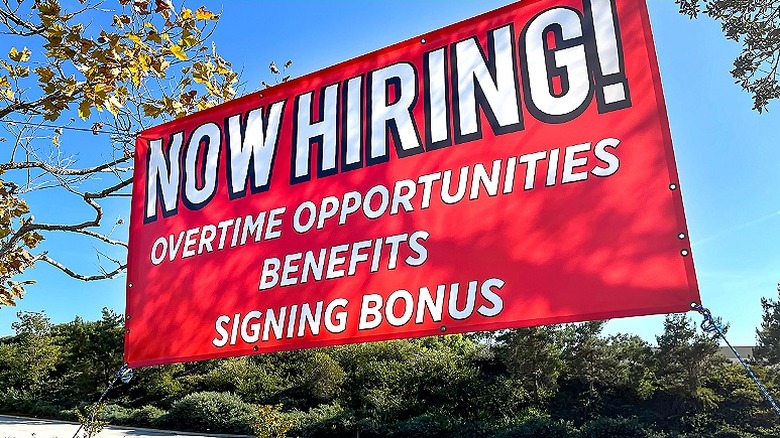Here's What Will Happen To The Workforce As Baby Boomers Begin To Retire
There's a lot of discussion around retirement these days. From the Social Security Administration recently announcing it has one extra year before its trust funds run out (which is set to occur in 2035 now) to younger generations experiencing money phobia about the prospect of ever getting to retire at all, retirement has increasingly become a complicated prospect. Worst of all, how retirement will change over the decades leaves each generation facing a vastly different prospect than the one that came before it.
However, while retirement is often the more discussed topic, there are other important workforce considerations that retirees are leaving behind, which are generally left out of the conversation. This brings us to our current 2024 workforce, where senior leadership roles are typically filled with baby boomers. As the silver tsunami continues to retire, what will happen to our workplaces?
For starters, the term silver tsunami refers to how the baby-boom generation (those born between 1946 and 1964) will affect the economy as they age and retire. Even though some baby boomers have already retired, the biggest push is yet to come. As of 2022, there were about 58 million people over the age of 65 living in the United States (or, about 17.3% of the U.S. population), however, this same demographic is projected to reach 23% of the population by 2054, representing a 47% increase. As experts attempt to predict how this exodus will affect the U.S. workforce, there are already clear pros and cons. Let's dive into the good and bad of how a mass boomer retirement will affect the workforce.
The downsides of baby boomers retiring
One of the most significant predicted workforce problems with the large-scale retirement of baby boomers is the potential for labor shortages. According to data from the U.S. Chamber of Commerce, the current job market is already experiencing complications, and we haven't even reached the peak of baby-boomer retirement yet. As of May 2024, the country had 8.8 million job openings, but only 6.4 million unemployed workers. This leaves the potential for labor shortages that can cause a ripple effect throughout the economy. With that in mind, the gap in labor won't affect all industries in the same way. According to the Bureau of Labor Statistics, over 40% of the skilled tradespeople in the U.S. are over the age of 45. This means a significant portion of the carpenters, electricians, and plumbers across the country could disappear entirely without the necessary amount of younger people to fill the gaps.
One of the less tangible or measurable concerns that experts have when it comes to baby boomers retiring is the potential for a talent gap (also known as a brain drain). This is the idea that losing the over 30 years of industry knowledge and experience that baby boomers bring to a workplace could negatively affect a company and/or industry. This could be especially problematic for companies that have a high percentage of baby boomers in their upper management or executive ranks. By having too many of these positions retire in a short period of time, a company could face uncertainty and transition that could negatively impact operations and even stock prices. (Learn which jobs are the highest-paying jobs in the U.S.)
Other considerations for the labor force
With this said, there's a school of thought, especially among younger generations, that shedding the traditions of the past (that is, baby-boomer leadership) might not be such a bad thing. After all, what good is institutional knowledge if that institution was fundamentally more conservative (as well as societally less accepting) than the world is today?
Younger workers wouldn't only have more job opportunities, but they'd also be able to reach higher levels within the workforce, thanks to vacancies that didn't exist while baby boomers were still in the workforce. The influx of newer and younger ideas could also potentially bring out renewed growth for companies that might have grown stagnant under older leadership. However, Generation X (born between 1965 and 1980) are next in line seniority-wise to take over leadership roles (note, Gen X also faces a complicated retirement path).
As cost-of-living prices have soared, and the amount of money people need to retire comfortably continues to rise, the workforce could also be faced with the possibilities that baby boomers won't retire or will significantly delay their retirement. As Jason Fichtner, chief economist at the think tank Bipartisan Policy Center, explained it to Investor's Business Daily, "With the U.S. experiencing the greatest retirement surge in its history, the country's public and private-sector retirement systems have become obsolete. The old metaphor of the three-legged stool of retirement planning — employer pensions, personal savings and Social Security — no longer holds." Though 2024 may mark the largest surge of retirement-age people in the country's history, it could still be a while before we experience a surge of people actually retiring.


